|
Part 1: Risk, Uncertainty, and the Management of Nuclear Waste
|
| Moderator | Part 1 e-Dialogue |
|
Dr. Ann Dale, Professor,
From 1993 to 2001, she was a Senior Associate with the Sustainable Research Institute at UBC, where she led a major women and sustainable development conference in 1994. In addition, Dr. Dale created and continues to edit a Sustainable Development biannual book series, and chairs the Canadian Consortium for Sustainable Development Research (CCSDR). Prior to 1993, Dr. Dale was an Executive with the Federal Government of Canada where she had the privilege of working on many innovative and exciting assignments on behalf of the government such as: the Atlantic Canada Opportunities Agency in 1987, the National Round Table on the Environment and the Economy in 1988, two of the Neilson Program Task Forces (Regulatory Reform and Natural Resources), the D'Avignon Commission and the Anti-Inflation Board. |
|
| Panelists | |
|
He has served on eleven boards and committees of the U.S. National Research Council, the operating arm of the National Academies of Science and Engineering.In 2003 he chaired a committee examining the long-term stewardship of radioactive wastes from the Cold War production of nuclear weapons. In the 1980s Lee served as a member of the Board on Radioactive Waste Management, a standing body advising the U.S. government on radioactive waste matters. Lee was educated at Columbia and Princeton Universities, receiving a PhD. in physics from the latter in 1971. He then studied political science and public policy at the University of California, Berkeley, before beginning a teaching career at the University of Washington. He came to Williams College in 1991 as director of the Center for Environmental Studies, serving until 1998.
He was a Fellow and Past-President (1999-2001) of the Royal Society of Canada and an Officer in the Order of Canada. From 1999 to 2004 he was the NSERC/SSHRC Research Chair in Risk Communication and Public Policy in the Faculty of Management, University of Calgary. From 1994 to 1999 he held the Eco-Research Chair in Environmental Policy at Queen's University. He is author, collaborator or editor of twelve books and numerous articles and reports. Over a period of fifteen years he has worked extensively in a consulting capacity with industry and with Canadian federal and provincial government departments in the area of risk communication, risk management, public consultation, and multi-stakeholder consensus-building processes. He has been an advisor on issues dealing with pesticides, toxic chemicals (chlorine, dioxins, and others), tobacco, prescription drugs, electric & magnetic fields, genetic engineering, and others.
Norman Rubin is Director of Nuclear Research and Senior policy Analyist at Energy Probe, Toronto, Ontario.
He was educated at Massachusetts Institute of Technology, receiving a BSc in 1966. He then went on to obtain a Masters of Arts from Boston University and a Masters of Fine Arts from Princeton.During this time he was awarded several prominent fellowships. Listed frequently on Canada's "Who's Who" he has been described as Canada's leading energy environmental activist.
David Shoesmith is a Professor in the Department of Chemistry, University of Western Ontario, London, Ontario and specializes in research on the electrochemistry of materials and corrosion science. He has held this appointment since June 1, 1998. He presently holds the Natural Sciences and Engineering Research Council and Ontario Power Generation (NSERC/OPG) Industrial Research Chair in Nuclear Fuel Disposal Chemistry. Previously, he worked for Atomic Energy of Canada Ltd for 25 years, achieving the rank of principal scientist. Since 1980 he has been an active researcher in the Canadian Nuclear Waste Disposal Program, and is an international expert on waste container/waste package issues. He is an elected fellow of the International Association of Corrosion Engineers (1996) and the Canadian Society for Chemistry (1985). He has won awards from the Electrochemical Society (Lash Miller), the Canadian Society for Chemistry (Manitoba Chemist of the Year), The Canadian Institute of Mining and Metallurgy (Cohen Award), Atomic Energy of Canada (Discovery Award), and a University of Western Ontario Distinguished Professorship. He has written over 145 refereed publications and approximately 120 technical and commercial reports.
Royal Roads University |
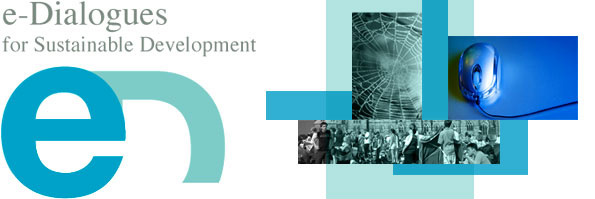
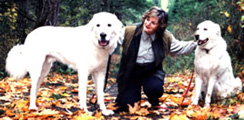 Dr. Dale is a rare hybrid, both an academic and an activist. Currently she is engaged in two major research initiatives at Royal Roads University. First, she is leading the e-Dialogues for Sustainable Development, a series of online dialogues exploring critical issues using the power of the internet to influence public policy. Second, she is working on exploring the relationship between social capital and sustainable community development. In 2001, she received the Policy Research Initiative's Outstanding Research Contribution Award for her most recent book, At the Edge: Sustainable Development in the 21st Century.
Dr. Dale is a rare hybrid, both an academic and an activist. Currently she is engaged in two major research initiatives at Royal Roads University. First, she is leading the e-Dialogues for Sustainable Development, a series of online dialogues exploring critical issues using the power of the internet to influence public policy. Second, she is working on exploring the relationship between social capital and sustainable community development. In 2001, she received the Policy Research Initiative's Outstanding Research Contribution Award for her most recent book, At the Edge: Sustainable Development in the 21st Century. 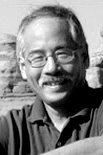 Kai N. Lee is a Professor of Environmental Studies at
Kai N. Lee is a Professor of Environmental Studies at 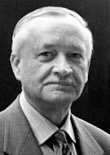
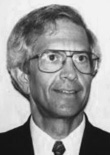 He first started working at Energy Probe in 1978 and has been Director since 1985. He has lectured at several universities throughout North America and participated on numerous committees including: Nuclear Fuel Waste Management (1990-1997); Economics of Nuclear Power (1988) and High Level Nuclear Wastes (1987). During the past 25 years he has produced countless articles on related topics such as: Risks of a Nuclear Waste Disposal Facility (1995); The Mismanagement of Canada's Nuclear Waste Program (1987) and many others. In addition, he has appeared on virtually all national current-affair and news programs including CBC, CTV, The Fifth Estate and The Nature of Things. He also hosted a ten episode program based in Ontario called Fragile Nature.
He first started working at Energy Probe in 1978 and has been Director since 1985. He has lectured at several universities throughout North America and participated on numerous committees including: Nuclear Fuel Waste Management (1990-1997); Economics of Nuclear Power (1988) and High Level Nuclear Wastes (1987). During the past 25 years he has produced countless articles on related topics such as: Risks of a Nuclear Waste Disposal Facility (1995); The Mismanagement of Canada's Nuclear Waste Program (1987) and many others. In addition, he has appeared on virtually all national current-affair and news programs including CBC, CTV, The Fifth Estate and The Nature of Things. He also hosted a ten episode program based in Ontario called Fragile Nature. 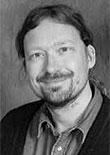 Dr. Andy Stirling is a Senior Lecturer at SPRU – science and technology policy research, at the University of Sussex. A social scientist with a background in the natural sciences, his research focuses on issues around scientific uncertainty, public participation and the application of the precautionary principle in the governance of technology. He has explored these issues in a variety of areas, including energy, biotechnology, chemicals, public health and radioactive waste policy. Formerly a boardmember of Greenpeace International, he has worked with a wide range of academic, industry and government bodies and served on a number of government advisory committees. These include the European Commission’s Energy Policy Consultative Committee and the UK Advisory Committee on Toxic Substances, GM Science Review Panel and Science Advisory Council.
Dr. Andy Stirling is a Senior Lecturer at SPRU – science and technology policy research, at the University of Sussex. A social scientist with a background in the natural sciences, his research focuses on issues around scientific uncertainty, public participation and the application of the precautionary principle in the governance of technology. He has explored these issues in a variety of areas, including energy, biotechnology, chemicals, public health and radioactive waste policy. Formerly a boardmember of Greenpeace International, he has worked with a wide range of academic, industry and government bodies and served on a number of government advisory committees. These include the European Commission’s Energy Policy Consultative Committee and the UK Advisory Committee on Toxic Substances, GM Science Review Panel and Science Advisory Council.